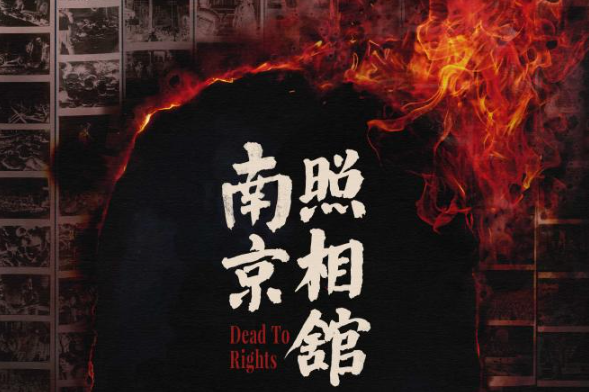Donald Rumsfeld dies; was Pentagon chief twice


Donald Rumsfeld's combative tenure as US defense secretary under two Republican presidents straddled the Cold War and later the fight against terrorism — notably in the conflicts in Iraq and Afghanistan.
Rumsfeld, who died Tuesday at age 88, was the only Pentagon chief to serve two nonconsecutive terms: 1975 to 1977 under President Gerald Ford, and 2001 to 2006 under President George W. Bush.
"On the morning of September 11, 2001, Donald Rumsfeld ran to the fire at the Pentagon to assist the wounded and ensure the safety of survivors. For the next five years, he was in steady service as a wartime secretary of defense — a duty he carried out with strength, skill, and honor," Bush — whose father and former president George H.W. Bush was once a Washington rival of Rumsfeld's — said in a statement Wednesday.
Bush also described Rumsfeld as "a man of intelligence, integrity, and almost inexhaustible energy, he never paled before tough decisions, and never flinched from responsibility".
Rumsfeld was a US congressman from Illinois from 1963 to 1969, before taking a variety of posts in the administration of President Richard M. Nixon, including counselor to the president, a Cabinet-level post with a West Wing office.
Rumsfeld left Washington in 1973 to serve as US ambassador to the North Atlantic Treaty Organization (NATO). He returned to the US capital in August 1974 following Nixon's resignation amid the Watergate scandal.
After heading up the transition to the Ford administration, Rumsfeld was named White House chief of staff. He later left Washington to enter the business world and held various executive positions, including chairman of the biopharmaceutical company Gilead Sciences from 1997 to 2001.
Although Rumsfeld was no longer working in presidential administrations after Ford's tenure, he stayed in government service part time in the intervening years. In 1983, Rumsfeld was appointed special envoy to the Middle East by then-president Ronald Reagan, amid the Iran-Iraq war. The US had supported Iraq in the war at the time, and in 1983, Rumsfeld had a meeting with Saddam Hussein in Baghdad.
In his 2011 memoir titled Known and Unknown, Rumsfeld wrote that his meeting with the Iraqi leader "has been the subject of gossip, rumors, and crackpot conspiracy theories for more than a quarter of a century. ... Supposedly I had been sent to see Saddam by President Reagan either to negotiate a secret oil deal, to help arm Iraq, or to make Iraq an American client state. The truth is that our encounter was more straightforward and less dramatic."
In 2001, Rumsfeld became the younger Bush's defense secretary after receiving a recommendation from Vice-President Dick Cheney.
Rumsfeld later played a leading role in support of invading Iraq in 2003. The "shock and awe" campaign led to the fall of Baghdad in a month. Rumsfeld and many others in Washington and in the media at the time alleged that Iraq had weapons of mass destruction, but no such weapons were discovered. Some 200,000 Iraqi civilians are estimated to have died in a war that the United Nations described as illegal.
In 2004, Bush twice refused to accept Rumsfeld's offer to resign after photos surfaced of US personnel abusing prisoners at the Abu Ghraib prison outside Baghdad. The story stirred global outrage after the photos showed American troops joking as prisoners were forced into humiliating sexual positions.
Rumsfeld faced the brunt of the criticism for the incident, and as the Iraq war turned into a stalemate with dwindling public support, Bush replaced him in November 2006 with Robert Gates, over Cheney's objections.
Bush announced Rumsfeld's departure a day after the midterm elections in which Democrats won control of Congress, with Iraq being a major campaign issue.
Rumsfeld also oversaw the US invasion of Afghanistan in 2001 to oust the Taliban leaders who had protected the al-Qaida members believed responsible for the 9/11 attacks.
American forces during Rumsfeld's tenure were unable to track down al-Qaida mastermind Osama bin Laden, who slipped past US special operations troops and CIA officers along with allied Afghan fighters in the Tora Bora mountains in December 2001. US forces killed bin Laden in 2011 in Pakistan, and on Sept 11 this year, they are scheduled to complete their withdrawal from the mountainous country after 20 years.
Rumsfeld, known by former presidents as "Rummy", was at turns brash and cunning but also charming, holding many memorable and entertaining press conferences.
In a 2009 biography of Rumsfeld, author Bradley Graham wrote that while it was "both incorrect and unfair to heap singular blame" on the defense secretary for the Iraq debacle, "much of what befell Rumsfeld resulted from his own behavior".
"He is apt to be remembered as much for how he did things as for what he did. And here, too, he was an internal contradiction. Capable of genuine charm, kindness and grace, he all too frequently came across as brusque and domineering, often alienating others and making enemies where he needed friends," the author wrote.
Reuters and The Associated Press contributed to this story.

































